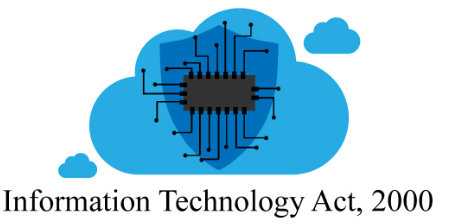The Information Technology Act, 2000: Objectives & Main Provisions | Crash Course for UGC NET Commerce PDF Download
| Table of contents |

|
| Information Technology Act, 2000 |

|
| Objectives of the Act |

|
| Features of the Information Technology Act, 2000 |

|
| Applicability and Non-Applicability of the Act |

|
The Information Technology Act, 2000 (also known as ITA, 2000 or IT Act), which came into effect on October 17, 2000, is the legislation governing cybercrimes and electronic transactions in India. This article will explore the key objectives and provisions of the IT Act, 2000.
Information Technology Act, 2000

In 1996, the United Nations Commission on International Trade Law (UNCITRAL) introduced a model law on electronic commerce (e-commerce) to promote consistency in legal frameworks across countries. The UN General Assembly encouraged all nations to consider this model when updating their laws. India became the 12th country to establish cyber laws by passing the Information Technology Act in 2000.
Initially, the Ministry of Commerce, Government of India, drafted the law as the E-Commerce Act of 1998. It was later revised as the Information Technology Bill in 1999 and officially enacted in May 2000.
Objectives of the Act
The Information Technology Act, 2000 aims to provide legal recognition to transactions conducted through electronic data exchange and other forms of electronic communication or e-commerce activities. This includes moving away from traditional paper-based methods of communication and information storage to enable electronic filing of documents with governmental bodies.Objectives of the Act
- Granting legal recognition to all transactions carried out through electronic data exchange or other electronic communication methods, replacing the conventional paper-based communication approach.
- Providing legal validity to digital signatures for authenticating information or matters requiring legal validation.
- Enabling the electronic submission of documents to government agencies and departments.
- Supporting electronic data storage.
- Providing legal backing and facilitating electronic funds transfer between banks and financial institutions.
- Extending legal recognition to bankers under the Evidence Act, 1891, and the Reserve Bank of India Act, 1934, for maintaining electronic accounting records.
Features of the Information Technology Act, 2000
- Electronic contracts made through secure channels are legally recognized.
- Digital signatures receive formal legal recognition.
- Security measures are in place for both electronic records and digital signatures.
- A process for appointing adjudicating officers to conduct inquiries under the Act has been established.
- A Cyber Regulatory Appellate Tribunal is to be created, handling appeals against decisions made by the Controller or Adjudicating Officer.
- Appeals against the Tribunal's rulings can only be made to the High Court.
- Digital signatures will rely on an asymmetric cryptosystem and a hash function.
- The Controller of Certifying Authorities (CCA) will be appointed to license and regulate Certifying Authorities and maintain digital signature records.
- The Act applies to offenses committed outside of India.
- Senior police officers and other officials can enter public places, search, and arrest without a warrant.
- A Cyber Regulations Advisory Committee will be formed to advise the Central Government and the Controller.
Applicability and Non-Applicability of the Act
Applicability:
As per Section 1 (2) of the Act, it applies to the entire country, including Jammu and Kashmir, through the use of Article 253 of the Constitution. The Act extends beyond national borders and provides extra-territorial jurisdiction, meaning it applies regardless of citizenship.
Sections 1 (2) and 75 clarify that the Act covers offenses or violations committed outside India. If a crime involves a computer, system, or network located in India, the person responsible can be prosecuted under the Act, regardless of their nationality.
The main limitation of this provision is the lack of international cooperation.
Non-Applicability:
Under Section 1 (4) of the Information Technology Act, 2000, the following documents are exempt from the Act:
- Execution of negotiable instruments under the Negotiable Instruments Act, 1881 (except cheques).
- Execution of a power of attorney under the Powers of Attorney Act, 1882.
- Creation of trusts under the Indian Trust Act, 1882.
- Execution of wills under the Indian Succession Act, 1925, including other forms of testamentary dispositions.
- Contracts for the sale or transfer of immovable property or any interest in such property.
- Any other class of documents or transactions as notified by the Central Government in the official Gazette.
|
157 videos|236 docs|166 tests
|















